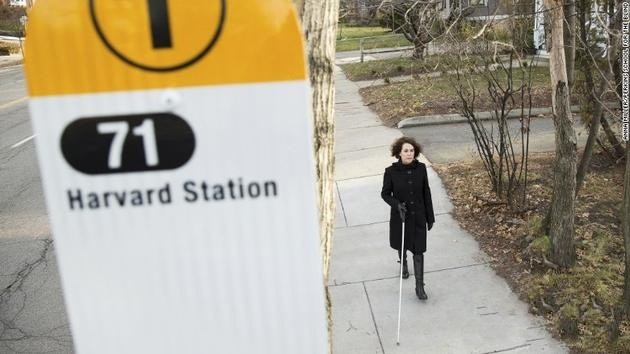On the morning of April 13, Google will fund $750,000 for the Pekins School for the Blind in Boston to develop the Waze app for the blind. Like many Boston residents, Joanne Becker uses a smartphone to find the nearest bus stop. However, the accuracy of GPS positioning is usually less than 10 meters. Unlike most people, Baker could not accurately see where the bus stopped because she was blind. Her employer, Pekins School for the Blind, is developing a crowdsourced location information application. The app started at a local bus stop, and developers believe it will help blind people around the world solve the "last 10 meters" problem. Google will fund $750,000 for the Pekins School for the Blind and bring professionalism to crowdsourced map development. Google’s philanthropy, Google.org, will spend more than $20 million to fund organizations that use technology to help people with disabilities. Google announced on Tuesday the 30 winners of the Google Disability Challenge, which received an average of $750,000 in grants. Google announced the launch of the competition last year and subsequently received more than 1,000 applications from 88 countries around the world. According to Brigitte Hoyer Gosselink, who is in charge of the competition, "this topic is interesting because it makes sense on a global scale. 1/7 of the world's population has varying degrees of disability. ." The winners are concerned with issues in multiple areas, such as 3D printed prostheses and software that helps autistic patients. The Center for Discovery received $1 million to develop an open source device, indieGo, to turn a manual wheelchair into an electric wheelchair. Ezer Mizion and Click2Speak are developing on-screen keyboards to help people with impaired motor functions to enter without their hands. Google.org provided them with $400,000. Not all of the innovations funded by Google are related to high technology. Miraclefeet will use $1 million to fund the use of SMS to help patients with deformed feet continue to receive treatment. The Pekins School for the Blind is the first school in the United States for the blind and has been developing innovative technologies. However, "Waze for the blind" is the first smartphone app developed by the school. Dave Power, the school's principal, said: "We believe that using mobile apps to help the blind has great potential. It's like a brand new tool that solves traditional problems." The school and Boston software The development team Raizlabs has collaborated. When Baker talked about the troubles of the bus station, the Pekins School for the Blind got inspiration. Baker said: "The bus may exceed me and stop at the stop. 10 meters will make a big difference." The app is still in the early stages of development and the final version is expected to be completed next year. The app will appeal to ordinary people to share specific information about bus parking, such as near a bench. By turning such volunteering into a game or offering rewards such as coffee discount coupons, the Pekins School for the Blind wants to engage people. Google is not simply funding these organizations, and will invite its own experts to evaluate the final product. Gesellenko also said: "Google has a team with experience in the crowdsourcing lead field, this is Waze. Guangzhou Zhongzhinan Supply Chain Co.,Ltd. , https://www.gzzhongzhinan.com